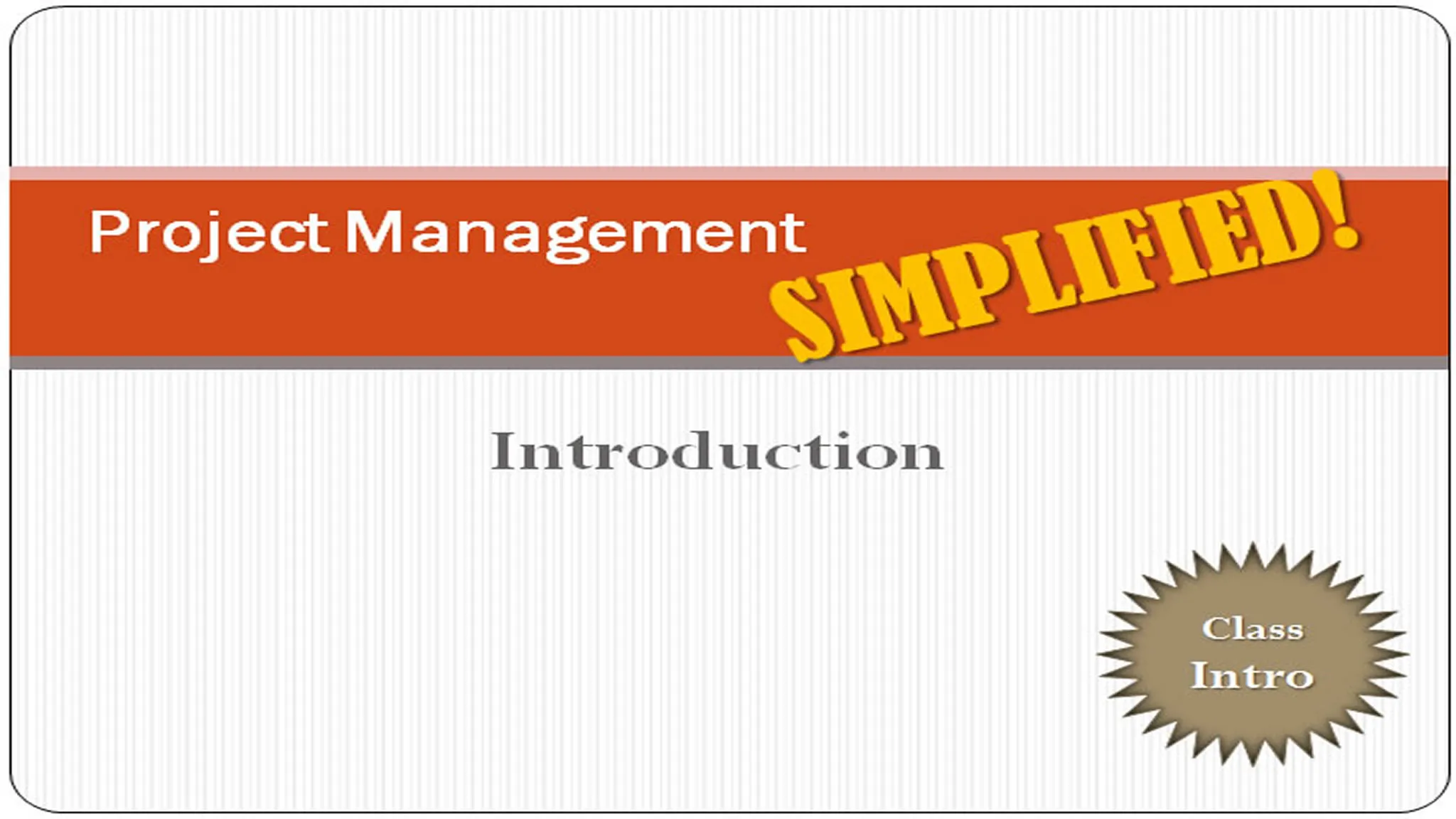
Process Management 
Learn the basics of Process Management ▼
ADVERTISEMENT
Course Feature
![]() Cost:
Cost:
Free
![]() Provider:
Provider:
Youtube
![]() Certificate:
Certificate:
Paid Certification
![]() Language:
Language:
English
![]() Start Date:
Start Date:
On-Demand
Course Overview
❗The content presented here is sourced directly from Youtube platform. For comprehensive course details, including enrollment information, simply click on the 'Go to class' link on our website.
Updated in [May 17th, 2023]
Anything and everything you do should be followed through in an organised way, if not the ideal, in order to steer clear of disappointment and ensure that you reap the desired results without fail. Therefore, every task or activity that you volunteer for or is assigned to you should incorporate certain processes from the very beginning till the end so that you accomplish the broader aims and objectives. If you falter or fail to deliver at any stage of such a process, then you might be risking the successful achievement of said goals. Thus, it is very much important for you to devise and follow through all the stages of the process in the appropriate way. This holds great significance especially in an organisational setting where several activities and tasks demand accurate and rigorous fulfillment from your part to avoid incurring additional expenses. And that is exactly why we are here to unfold the mystery of process management and help you ensure maximum efficiency and effectiveness regardless of the domain you specialise in. So, without further ado, let's get started with yet another fun session.
(Please note that we obtained the following content based on information that users may want to know, such as skills, applicable scenarios, future development, etc., combined with AI tools, and have been manually reviewed)
Welcome to the course on Process Management! This course will provide you with an in-depth understanding of the concept of process management and how it can be used to ensure maximum efficiency and effectiveness in any domain. We will explore the various stages of the process and how to ensure that each stage is completed in the most appropriate way. We will also discuss the importance of process management in an organizational setting and how it can help you avoid incurring additional expenses.
Possible Development Directions: After completing this course, you will be able to identify the various stages of the process and devise strategies to ensure that each stage is completed in the most appropriate way. You will also be able to understand the importance of process management in an organizational setting and how it can help you avoid incurring additional expenses. Furthermore, you will be able to apply the concepts of process management to your own work and ensure maximum efficiency and effectiveness.
Related Learning Suggestions: After completing this course, you may want to explore other related topics such as project management, quality management, and risk management. You may also want to look into the various tools and techniques used in process management and how they can be used to ensure maximum efficiency and effectiveness. Additionally, you may want to explore the various software and applications available for process management and how they can be used to streamline the process.
[Applications]
The application of this course can be seen in various aspects of life. It can help individuals to better manage their tasks and activities, as well as help organisations to ensure maximum efficiency and effectiveness in their operations. It can also be used to streamline processes and ensure that all stages of a process are followed through in an organised way. Additionally, it can be used to identify areas of improvement and develop strategies to reduce costs and increase productivity.
[Career Paths]
1. Process Improvement Manager: Process Improvement Managers are responsible for identifying and implementing process improvements within an organization. They analyze existing processes and develop strategies to improve efficiency, reduce costs, and increase customer satisfaction. They also develop and implement process improvement initiatives, such as Lean Six Sigma, Kaizen, and Total Quality Management. Developing trends in this field include the use of automation and artificial intelligence to streamline processes and the use of data analytics to identify areas of improvement.
2. Process Engineer: Process Engineers are responsible for designing, developing, and optimizing industrial processes. They analyze existing processes and develop strategies to improve efficiency, reduce costs, and increase customer satisfaction. They also develop and implement process improvement initiatives, such as Lean Six Sigma, Kaizen, and Total Quality Management. Developing trends in this field include the use of automation and artificial intelligence to streamline processes and the use of data analytics to identify areas of improvement.
3. Process Analyst: Process Analysts are responsible for analyzing and evaluating existing processes and developing strategies to improve efficiency, reduce costs, and increase customer satisfaction. They also develop and implement process improvement initiatives, such as Lean Six Sigma, Kaizen, and Total Quality Management. Developing trends in this field include the use of automation and artificial intelligence to streamline processes and the use of data analytics to identify areas of improvement.
4. Process Consultant: Process Consultants are responsible for providing advice and guidance to organizations on process improvement initiatives. They analyze existing processes and develop strategies to improve efficiency, reduce costs, and increase customer satisfaction. They also develop and implement process improvement initiatives, such as Lean Six Sigma, Kaizen, and Total Quality Management. Developing trends in this field include the use of automation and artificial intelligence to streamline processes and the use of data analytics to identify areas of improvement.
Course Provider

Provider Youtube's Stats at AZClass
Discussion and Reviews
0.0 (Based on 0 reviews)
Explore Similar Online Courses

Storytelling in the Digital Age: 1HR Super Course - Presenting writing marketing editing & more!

Sound for music technology: An introduction

Project Management SIMPLIFIED

Practical Project Management for Managers and First Time PMs

Scrum Master Certification Exam Preparation

Project Management for Developers and Technical Experts

Practical Project Management Certification - Microcredential - FutureLearn

Project Management: Human Resources and Leadership - FutureLearn

Big Picture of the Projects and Beyond

Project Management Skills and Leadership Course

Prince Training - Project Management Certification - FutureLearn


Start your review of Process Management